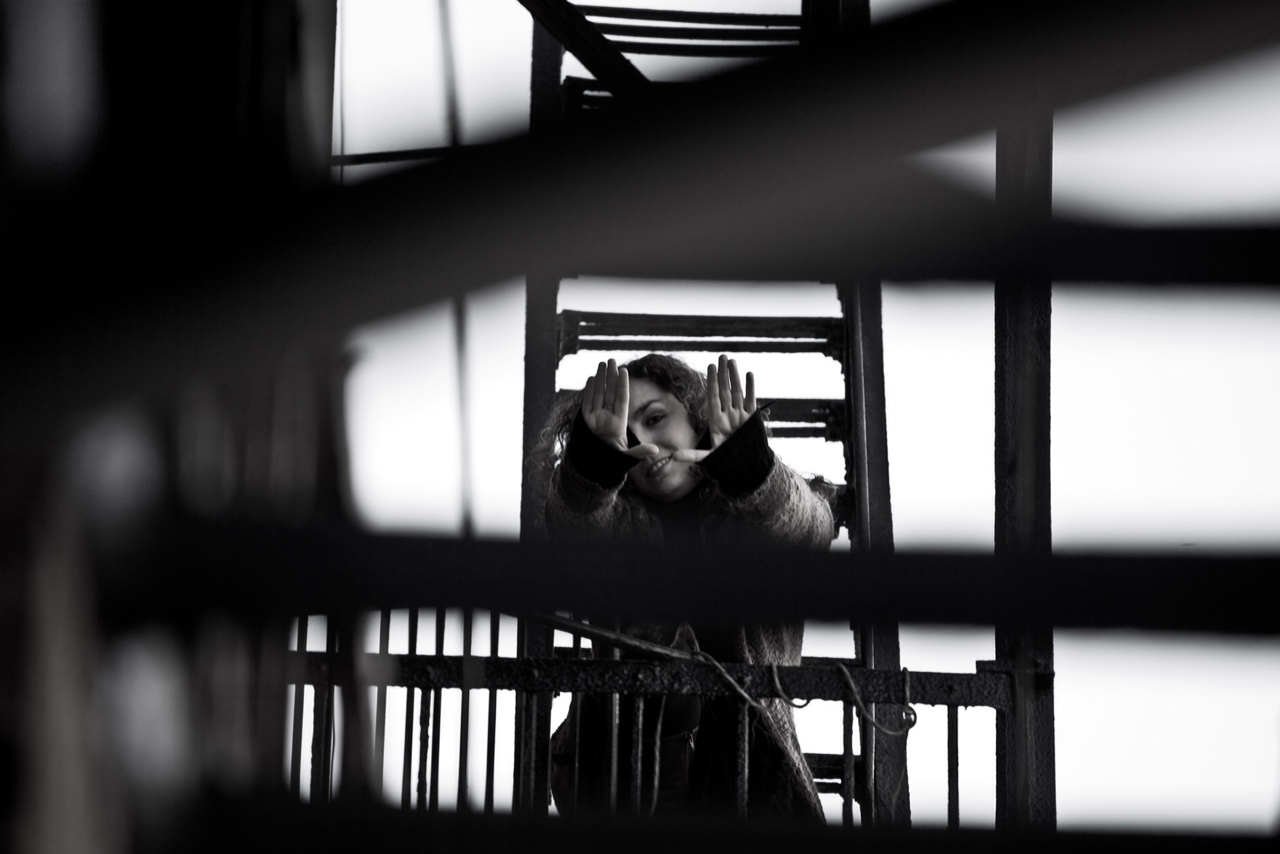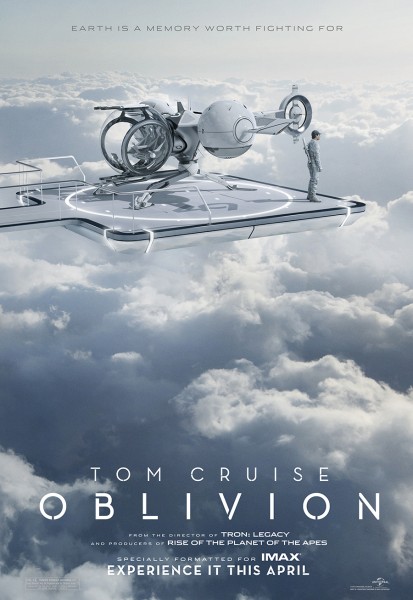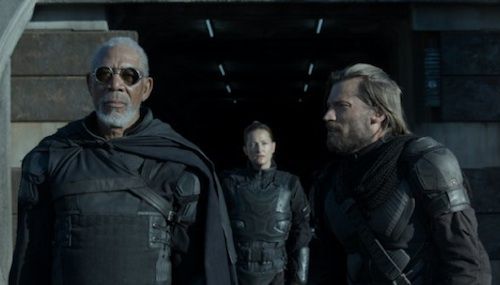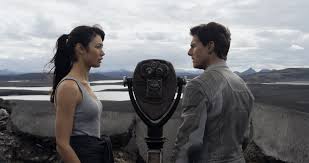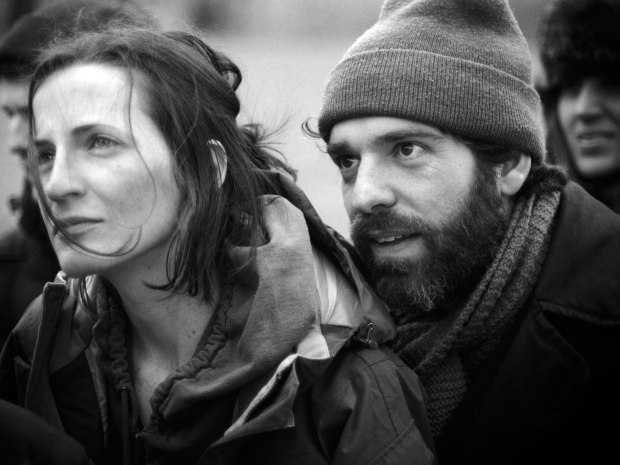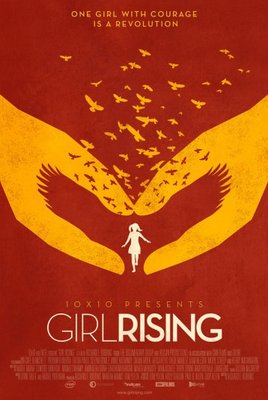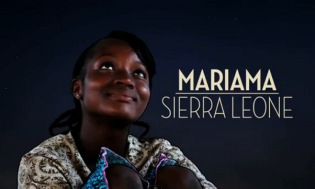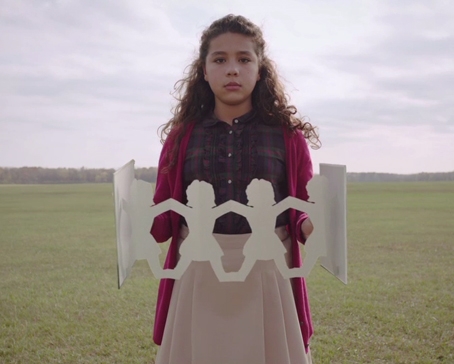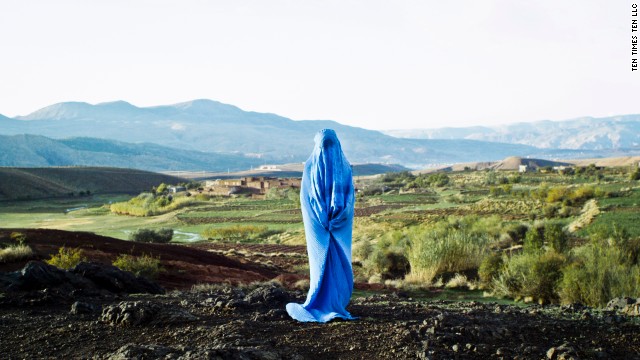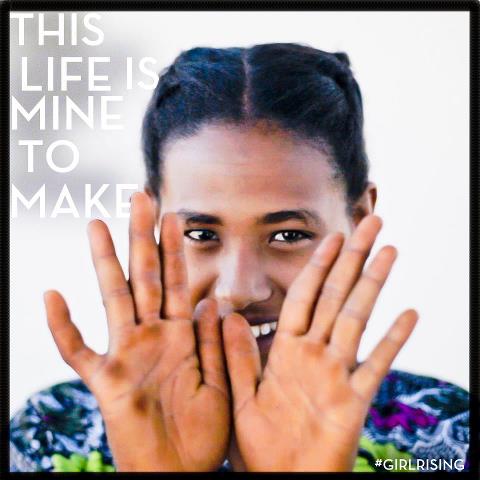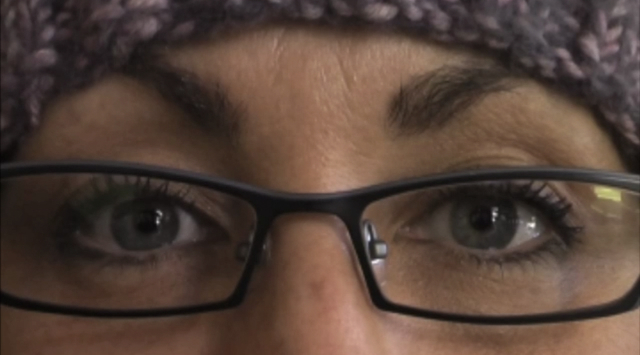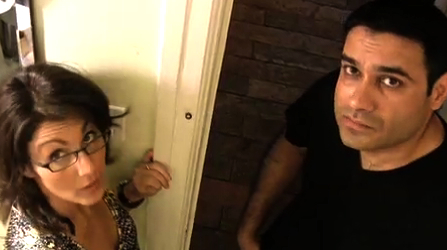 |
| Filmmaker Violeta Barca-Fontana |
This is a guest post written by Violeta Barca-Fontana.
INT. FILM SCHOOL, CLASSROOM – DAY
First day of class at a film school in Madrid. Twenty impatient students are waiting for the teacher, PACO, a very well known film director. Also in the classroom is VIOLETA (20).
The professor enters the classroom with a serious look and a decided walk. Taking a moment to look over the beardless students, some with incurable acne, who return his gaze with eyes wide open waiting for his wise words.
MASTER
You are twenty five students.
Only three of you will ever direct a film.
The students look at each other hoping they misunderstood him.
The professor continues with his welcome speech.
MASTER
I see there are some women here.
(beat)
In film women usually end up in make-up, wardrobe, or as script supervisors.
The six girls, including Violeta, look at each other for moral support not knowing how to react.
MASTER
I say that, just so you take it under consideration.
That was my very first contact with the film world. The first of many scenes I would live through during my career.
But my professor was wrong. My first boss was a woman; one of the best line producers in Spain and, without a doubt, one of the toughest and most unscrupulous bosses I have ever had. I learned the most about film making from her. I learned how films were really made, and how a well organized production leads to certain success.
Carmen, my boss, treated the women of her team much more harshly than the men. At first I thought she was very unfair to do so, but after all these years, reflecting on how much I learned being around her, I realized that maybe she did it because she felt she could bring out the best in them that way.
I worked with her in two different productions. Without a doubt she treated me worse than any of my co-workers. I think she wanted to take the wind out of my arrogance and break through the wall every film school builds around you: “I know everything and I´m the best.” I think she wanted to show me the subterranean underground of real life, where real movies get made, grown-up movies; where if you want to be called Director, first you have to earn your place with lots of effort and years of experience.
 |
| Violeta, in color. |
Schools, and above all film schools, just serve to create confusion among the students leading them to believe that their initial easy success inside can be achieved in the professional world. No, ladies and gentleman; making movies is very complicated.
In my second film with Carmen, she promoted me from PA to Second AD. The director was the very well known master CARLOS, already considered an icon in Spain.
Pretty soon Carlos took a liking to me and wanted me to sit in front of the monitors with him all the time, explaining every shot to me. I was fascinated to observe how he would sketch the next shot on a scrap of paper with his Mont-blanc fountain pen to show his Director of Photography. As a film student I look back on those hours with him as a divine gift.
I have great memories of Carlos as one of my greatest teachers, a true genius. Despite this I sensed that inside he believed the idea that women do not direct movies. Carlos constantly asked one of my male colleagues, strangely enough the script supervisor, when he would direct his next short film, and what was he writing lately. I always hoped that longed question would be asked of me, but it never came, as if he assumed that I was not writing, and I had no intention of directing either. I always wanted to expound about my many projects to my Master.
INT. PLATÓ DE RODAJE – DAY
A huge set with over fifty people coming and going, working, loading, unloading, cameras, rails, spotlights. Carlos in the background talking to three men in suits, producers. They talk, they laugh.
Violeta walks in their direction. Within a few feet she feels observed by the group, who have a big laugh. Violeta is about to pass by when Carlos stops her.
CARLOS
Violeta, wait. Come here for a moment.
Violeta draw close. The men in suits stop laughing but kept their smiles behind their ties.
CARLOS
Tell me, what are you working on? So you write?
Have you ever directed anything?
Violeta pauses. Uncomfortably, she looks at the group which is waiting for her to give them a failed reply.
VIOLETA
(timidly)
Well, I just finished producing a feature film with two colleagues from school. It’s called La Fiesta and the Walt Disney Company has picked it up for distribution.
Silence. Their smiles go away. Violeta smiles amiably and moves on to continue her work.
I don’t know if it’s easier or harder to work with men or women. I feel very comfortable working with both. But what I do know is that most of the time working with women means not having to constantly prove your worth. We all know what we’re capable of and just do our job.
 |
| The Color Thief crew. |
This theory held up in my last project,
Color Thief. A project, and I promise unintentionally, led almost entirely by females, which from the beginning has been characterized by its fluidity. Is this because it is guided by women? I do not know…


